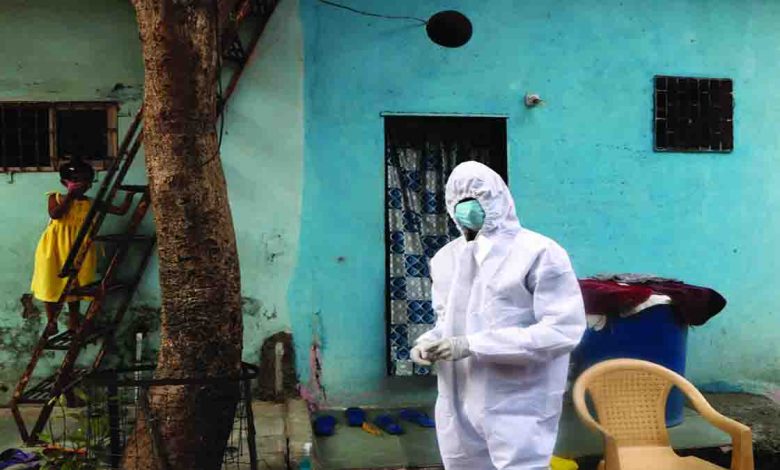New strains didn’t cause spike

No proof of upsurge in Covid cases due to these variants: Govt
As many as 194 persons in India are infected with three known strains first found in the UK, South Africa and Brazil, but there has been no evidence to show that these new variants are responsible for the upsurge in Covid-19 cases in Kerala and Maharashtra, said the Union Health Ministry on Tuesday.
The two States account for 75 per cent of total active Covid-19 cases in the country.
The Ministry said that a total 187 individuals have been reported infected with the UK strain, six people with South African strain, and one with Brazilian strain till date.
“Two variants of SARS-CoV-2 — N440K and E484K — have been detected in Maharashtra and Kerala, but there is no reason to believe presently that they are responsible for the surge in cases in some districts in these two States,” Niti Aayog Member (Health) VK Paul said at a Press conference here.
He said that 187 people have tested positive for the UK strain of SARS-CoV-2 in the country so far, while six people have been detected with the South Africa variant. Also, one person has been tested positive for the Brazil variant strain.
“Both the N440K and E484K variants of SARS-CoV-2 have been detected in Maharashtra. In Kerala and Telangana also these variants have been found. Also, three others — UK, South Africa and Brazil variants are there in the country. But there is no reason for us to believe that they are responsible for the upsurge of the outbreak in some districts of Maharashtra and Kerala,” Paul said.
He added that the two variants have been found in India’s three States. “There are two variants in Maharashtra being talked about — N440 K variant and E484 K variant. These variants have been reported in Maharashtra, Kerala and Telangana,” Paul said.
Reporting only detection does not lead to any attribution for a phenomenon on the ground because to relate the occurrence of a virus mutation to change in disease pattern, other epidemiological information and clinical information has to be linked to these mutants, Paul explained, adding, “because otherwise these (mutations) happen but they have no influence on the pandemic.”
He said the behaviour of mutations is being constantly and closely watched in the country and 3,500 strains have been sequenced so far.
“When we are doing sequencing, we are looking for any abnormal shift in the virus character. We have been watching the mutants.
“Today, based on the information and as analysed and understood by a very eminent scientific advisory group of Indian SARS-CoV-2 Genomics Consortium (INSACOG), we would like to underline the fact that we do not see attribution of mutant strains to the upsurge of the infection being seen in some districts. But this is work in progress.
“We will continue to watch the situation with full responsibility,” Paul said.
The SARS-CoV-2 Genomics Consortium (INSACOG) was established in December end for laboratory and epidemiological surveillance of circulating strains of SARS-CoV-2 in the country.
Stating that a large proportion of the population is still vulnerable, Paul stressed that Covid appropriate behaviour like wearing masks, maintaining social distancing, hand washing and not getting into mass gatherings should be followed.
Wednesday, 24 February 2021 | PNS | New Delhi





